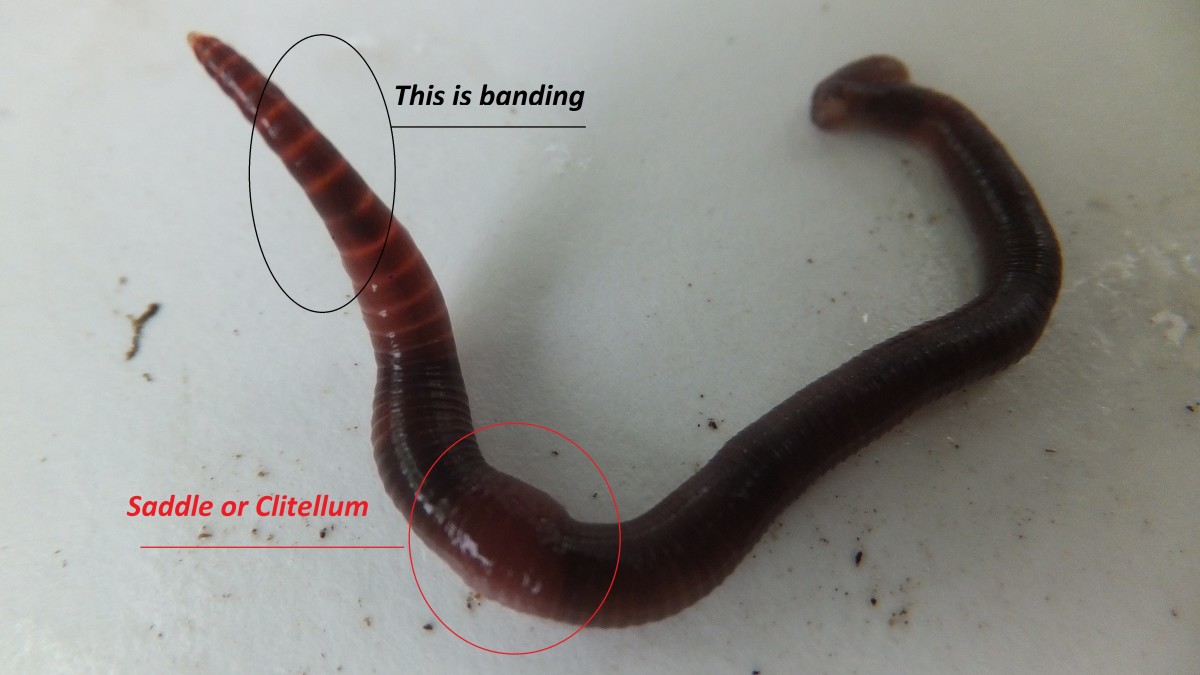Red Wiggler Express: Reliable Bait for a Successful Fishing Day
Red Wiggler Express: Reliable Bait for a Successful Fishing Day
Blog Article
Red Wigglers: The Unsung Heroes of Organic Waste Recycling
Red wigglers, or Eisenia fetida, offer as vital agents in the natural waste recycling process, changing thrown out materials right into useful vermicompost. As the globe increasingly seeks options to combat waste build-up and improve farming efficiency, recognizing the duty of these worms comes to be crucial.
What Are Red Wigglers?
The remarkable resilience of red wigglers, medically known as Eisenia fetida, highlights their critical function in organic waste recycling. These small, reddish-brown earthworms are generally found in breaking down raw material, such as garden compost heaps and manure heaps. Lake Hickory Bait. Unlike various other earthworm types, red wigglers prosper in nutrient-rich settings and are very effective at damaging down natural products, making them important for vermicomposting

(Red Wiggler Express)In addition to their function in waste decrease, red wigglers add to dirt wellness by boosting dirt framework and aeration with their burrowing tasks (Lake Hickory Bait). Their existence in composting systems not only improves disintegration prices but likewise advertises a lasting technique to squander administration, illustrating their relevance in eco-friendly conservation initiatives
Benefits of Composting With Worms
Composting with worms, specifically red wigglers, supplies many benefits that boost both waste administration and soil health. These worms efficiently damage down organic waste, converting it right into nutrient-rich vermicompost that enriches soil. This procedure increases disintegration, permitting for a much faster recycling of kitchen area scraps and various other natural materials contrasted to standard composting methods.
Furthermore, the vermicompost produced by red wigglers is including useful bacteria, which assist boost soil structure, aeration, and dampness retention. This boosts the general health of plants, advertising vigorous growth and boosted returns in gardens and agricultural setups. In addition, using worms in composting decreases the manufacturing of greenhouse gases, such as methane, adding to a more lasting waste monitoring system.

Exactly How to Begin Vermicomposting
Developing a vermicomposting system is an uncomplicated procedure that can produce considerable benefits for both waste management and soil enrichment. To start, pick a suitable container, such as a plastic container or wooden box, with sufficient ventilation holes to ensure proper air movement. The dimensions must preferably be about 2 feet by 3 feet, allowing enough room for the worms to grow.
Next, prepare bedding product, which can be composed of shredded newspaper, cardboard, or coconut coir. This bed linens needs to be moistened to produce an ideal habitat for the worms. When the bedding remains in location, introduce red wigglers (Eisenia fetida) right into the container, commonly around one pound of worms for every square foot of surface location.
Following the placement of worms, include natural waste, such as vegetables and fruit scraps, coffee premises, and smashed eggshells. Prevent adding dairy, meat, or oils, as these can create smells and draw in parasites. Place the bin in a shaded, temperature-controlled location to maintain optimum problems for worm task. With these steps, you will effectively launch a vermicomposting system that adds to sustainable waste management and improves your soil.
Keeping a Healthy And Balanced Worm Bin
(Red Wiggler Express)Keeping a worm bin prospering requires regular interest and care to guarantee the health and wellness of the red wigglers and the performance of the composting process. Appropriate upkeep begins with monitoring the dampness degrees; the bin must perspire however not soaked. An excellent general rule is to maintain an uniformity similar to a wrung-out sponge.
Aeration is important. Delicately mixing the bedding and food scraps every few weeks avoids compaction and makes certain that all worms have access to oxygen. In addition, it is important to feed the worms suitably. A well balanced diet regimen of vegetables and fruit scraps, coffee grounds, and crushed eggshells need to be supplied in moderation to stay clear of overfeeding, which can cause odors and parasites.
Temperature law is one more crucial facet. Red wigglers thrive in an array of 55 to 77 degrees Fahrenheit. If the container comes to be too hot or chilly, the worms may come to be stressed - Lake Hickory Bait. Lastly, regularly check for indicators of health, such as worm population growth and the visibility of healthy and balanced spreadings. By diligently managing these factors, one can maintain a durable and effective worm container.
Effect On Sustainable Living
The successful upkeep of a worm bin not just profits the health and wellness of red wigglers however also contributes dramatically to lasting living methods. By recycling organic waste, such as kitchen scraps and lawn debris, red wigglers help divert substantial quantities of product from garbage dumps. This reduction Lake Hickory Bait in waste not only lowers greenhouse gas exhausts but additionally minimizes the environmental concern connected with waste monitoring.
Moreover, the castings created by red wigglers act as a nutrient-rich organic fertilizer, improving soil wellness and advertising plant growth. This all-natural option to chemical fertilizers supports lasting farming and gardening methods, reducing reliance on artificial inputs that can hurt environments. Additionally, worm composting cultivates understanding of waste management, motivating people and neighborhoods to adopt even more lasting routines.

Verdict
In recap, red wigglers offer as essential factors to natural waste reusing with their reliable decomposition of organic products. By incorporating vermicomposting right into waste management approaches, people and areas can significantly reduce waste while advertising environmental sustainability.
Report this page